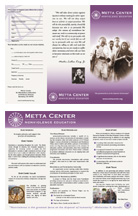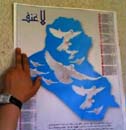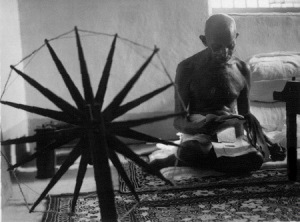The Challenge of Education for a New Generation: Converting Swords into Plowshares
“Where ignorance is your master, there is no possibility of peace.”
The XIV Dalai Lama.
The scientific contributions of Albert Einstein and Richard Feynman were fundamental for the construction of the atomic bomb. Today, their reflections on the subject are also fundamental for the survival and evolution of our species. Conversations with both scientists after the Manhattan Project indicate that both these great men felt remorse for their involvement. They both wished they had thought through more thoroughly their direct and indirect involvement with the project; and said that if they had known what their work would lead to they might have done differently.
These quotes from Albert Einstein are glimpses of his perspective:
 “I made one great mistake in my life—when I signed the letter to President [Franklin Delano] Roosevelt recommending that atom bombs be made.”1 “Had I known, that Germans would not succeed in producing an atomic bomb, I never would have lifted a finger.”2 “The unleashing of power of the atom bomb has changed everything except our mode of thinking…”3 “…Science has brought forth this danger, but the real problem is in the minds and hearts of men.”4 “We scientists must consider it our solemn and transcendent duty to do all in our power to prevent these weapons from being used for the brutal purpose for which they were invented.”5 “NONCOOPERATION in military matters should be an essential moral principle for all true scientists…”6 (my emphasis)
“I made one great mistake in my life—when I signed the letter to President [Franklin Delano] Roosevelt recommending that atom bombs be made.”1 “Had I known, that Germans would not succeed in producing an atomic bomb, I never would have lifted a finger.”2 “The unleashing of power of the atom bomb has changed everything except our mode of thinking…”3 “…Science has brought forth this danger, but the real problem is in the minds and hearts of men.”4 “We scientists must consider it our solemn and transcendent duty to do all in our power to prevent these weapons from being used for the brutal purpose for which they were invented.”5 “NONCOOPERATION in military matters should be an essential moral principle for all true scientists…”6 (my emphasis)
Richard Feynman joined the Manhattan Project as an enthusiastic and energetic 24 year-old. Later in his life—after recovering from a severe Post Traumatic Stress Disorder, similar to what soldiers experience after returning home “safely” from war—he said:
“One should reconsider perpetually one’s reasons for doing something, because it may be that the circumstances have changed… I don’t guarantee you as to what conclusion I would have come to if I had thought about it, but nevertheless the fact that I did not think about it was, of course, wrong.” 7
What I hear when I translate the spiritual languages of these two geniuses into my perspective is: we were going too fast. We are still going too fast. When we rush, we make decisions that lack information, lack proper reflection, and ultimately make the problems of humanity worse. In my opinion, the problem lies not in the contribution to human knowledge of talented minds like Einstein and Feynman, but the uses to which those contributions were put.
(more…)









 Metta Center for Nonviolence Education is excited to offer a unique opportunity to support nonviolent action in Iraq!
Metta Center for Nonviolence Education is excited to offer a unique opportunity to support nonviolent action in Iraq!


